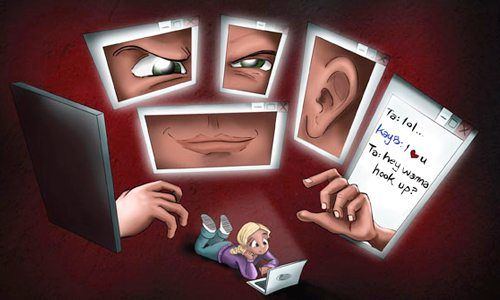October is the month of National Breast Cancer Awareness. There is a sea of pink everywhere around us which represents the fight against a horrifying disease that has impinged on many people and their families and has snatched the lives of even more. We expect that someday there will be a remedy for breast cancer and other forms of that hideous “C” word. Until then, we carry on to be careful, helpful and promote education to our communities on preventative health and wellness.
The month, October is also bullying avoidance and consciousness Month. We do not have scientists exploring for a cure, and we are not raising millions of dollars for deterrence. Nonetheless, bullying is a sinister trouble. In our society that continues to shoot up as our social reach burgeons. Prevention and education are the only means to slow this movement.
Bullying has been there for a long time, but the bully’s reach was once restrained to the playground, school bus or lunchroom. Perhaps you were the kid in the school yard who has pushed around or taunted. The grown ups in your life possibly told you just to become stiff. At least you had an amnesty; the bully was not in your home, too.
With social networking sites, that has altered a lot. Bullies can get to their aims wherever they are, making cyber bullying a grave, sometimes life-risking, the problem in today’s tech-savvy society. Cyber bullying may bring young kids and even adults to their sentimental breaking points.
The majority of people understand that when a person attempts suicide there are core causes. Nevertheless, online mistreatment intensifies the problem, especially if that person is struggling with self-esteem issues and someone tells them to “Drink bleach and die.”
Cyberbullying and digital shaming never lessens
The internet does not take time off for vacations, summer breaks or holidays. In a PEW study on young kids, social media and technology in 2015, ninety-two percent of teens go online on daily basis, with twenty-four percent saying that they are online continuously. They are expending most of their time in cyber space than they are in the actual world.
The solemnity of the situation is made more understandable by a fresh review from Vodafone, which disclosed that forty-three percent of teens assumed cyberbullying was a superior issue than drug abuse. The survey also revealed:
- Forty-one percent of teens said cyberbullying made them feel sad, vulnerable, and dispirited.
- Twenty-six percent said they felt complete loneliness.
- Eighteen percent said they felt suicidal.
- Twenty-one percent stay home from school due to cyberbullying
- Thirty-eight percent don’t let their parents know that they are being hassled online.
The reality that many children do not tell their parents or an adult about the cyber bullying is a problem that carries on to concern experts and advocates. Informing a parent is not only about reporting the bully so that steps can be taken, but it also aids in safeguarding the sentimental health of the child. The cause kids don’t tell their parents about cyber bullying may range from the terror of having their lifeline detached (being shut off from the Internet) and being embarrassed about what is happening to revenge from the bully or teasing by other kids. This is why offline parenting is so fundamental to a child’s online life. Only parents can turn this gauge around.







